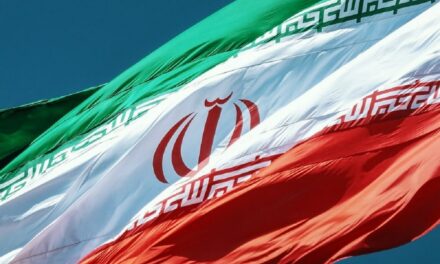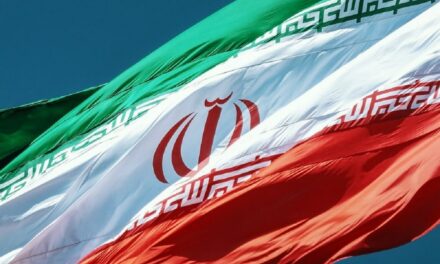We support our Publishers and Content Creators. You can view this story on their website by CLICKING HERE.
Now it’s official. Russia’s self-elected president, Vladimir Putin, has just made it quite clear that negotiating an end to the genocidal war against Ukraine is impossible. Not because Russia is unwilling to surrender Ukrainian territories it illegally annexed in 2014 and 2022, but because Ukraine is unwilling to withdraw from the Russian lands Russia legally annexed.
According to Putin in a speech to the Russian Foreign Ministry on June 14, all Ukraine needs to do to end the war is to withdraw its troops from all of Luhansk, Donetsk, Zaporizhzhia, and Kherson Provinces and declare that it has no intention of ever joining NATO. When Ukraine does this, “from our side there will immediately, literally in that very moment, proceed an order to cease fire and begin negotiations.”
Putin Shows His Intentions on Ukraine War
Please note that none of these provinces is fully in Russian hands. Hence, Putin is requesting that Ukraine withdraw from territories that are still in its possession. That said, Putin is not acting inconsistently or illogically. Back on September 30, 2022, Russia officially annexed these four provinces, having already annexed Crimea in 2014. No matter that the annexation was in violation of international law. Putin and most Russians think otherwise, and that’s that.
It should have been obvious to anyone with even a casual familiarity with Russia that this act was truly portentous for the simple reason that there is no provision in the Russian Federation’s Constitution for de-annexing territories. To be sure, Putin Russia is a lawless state, but even Putin maintains the appearance of legality in order to substantiate his claim that he is defending the Russian people and remains their legitimate ruler. He would, therefore, have to change the Constitution—something that no Russian currently wants—in order to enable himself to “return” these provinces “legally” to Ukraine.
Russia’s formal annexation of these provinces is thus the key obstacle to any negotiation with Russia, but Western proponents of negotiation conveniently ignored it, often blaming Kyiv for its supposed intransigeance. But Ukraine had, and still has, no choice but to refuse talks on such suicidal conditions.
If Russia can unilaterally annex territories that it doesn’t hold and whose populations detest it—as the residents of Kherson and Zaporizhzhia most certainly do—then there is nothing to stop Putin from annexing any number of other Ukrainian territories inhabited by Russians or anybody he claims needs his salvation. Putin would also be absolutely entitled to annex huge swaths of Estonia, Latvia, Belarus, and Kazakhstan and claim that their respective governments are the ones behind the wars that would inevitably break out.
In effect, Putin has clarified just how he sees Ukraine’s choices: it can either self-destruct by accepting his terms, or it can continue to fight and incur continued destruction by Russia.
It’s no wonder that the vast majority of Ukrainians opt for the second alternative. Continued fighting is tantamount to survival and offers a pretty good chance of victory, especially if the West continues to help.
Putin has done the world a service. In openly and blatantly ignoring international law and arguing for naked, untrammeled revanchism, he has made himself the contemporary equivalent of Adolf Hitler, who used the very same logic in arguing for Nazi Germany’s right to annex the Rhineland, Austria, and the Sudetenland.
For any sort of negotiation to take place, Putin will have to go, either politically or physically. Even then, talks will only be possible if his successors change the Russian Constitution, which will be difficult unless Russia suffers a major defeat in the war and its population realizes that imperialism, genocide, and war are dead ends.
In the 1930s, misguided Western leaders thought they could appease Hitler. Today, naïve Western analysts and policymakers think one can talk to Putin. Thanks to the Russian dictator, it’s now quite clear that all one can talk about with him is the modalities of Ukraine’s extermination. Ukrainians may be forgiven for saying, “thanks, but no thanks.”
About the Author: Dr. Alexander Motyl
Dr. Alexander Motyl is a professor of political science at Rutgers-Newark. A specialist on Ukraine, Russia, and the USSR, and on nationalism, revolutions, empires, and theory, he is the author of 10 books of nonfiction, including Pidsumky imperii (2009); Puti imperii (2004); Imperial Ends: The Decay, Collapse, and Revival of Empires (2001); Revolutions, Nations, Empires: Conceptual Limits and Theoretical Possibilities (1999); Dilemmas of Independence: Ukraine after Totalitarianism (1993); and The Turn to the Right: The Ideological Origins and Development of Ukrainian Nationalism, 1919–1929 (1980); the editor of 15 volumes, including The Encyclopedia of Nationalism (2000) and The Holodomor Reader (2012); and a contributor of dozens of articles to academic and policy journals, newspaper op-ed pages, and magazines. He also has a weekly blog, “Ukraine’s Orange Blues.”

 Conservative
Conservative  Search
Search Trending
Trending Current News
Current News 





